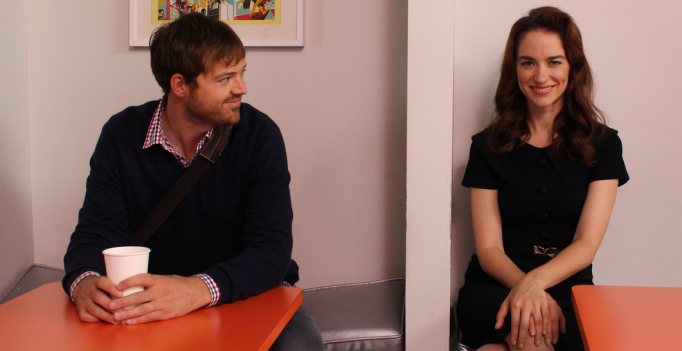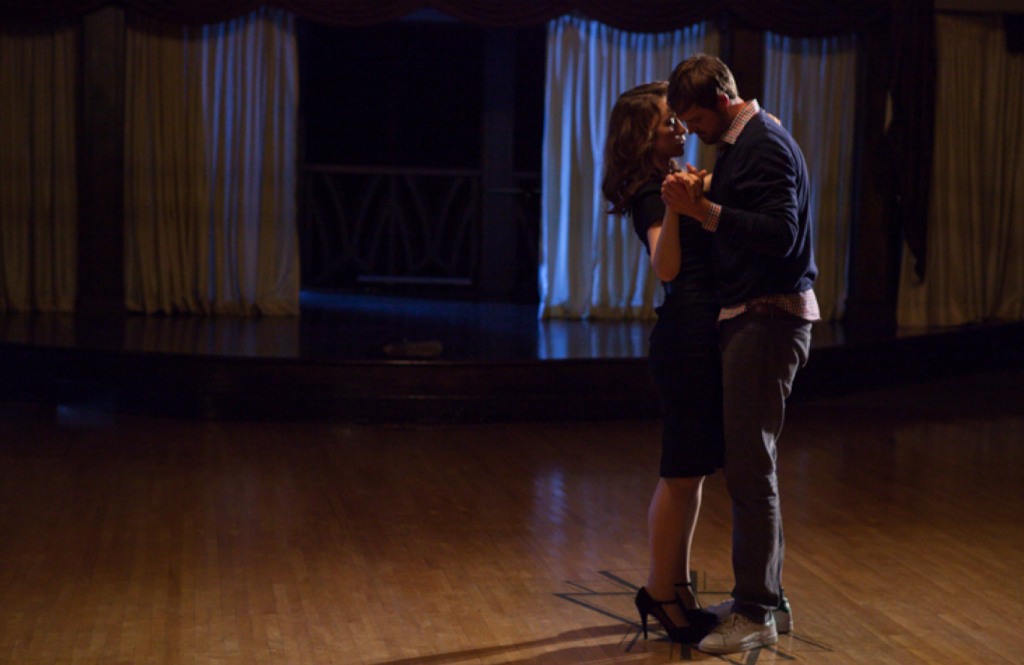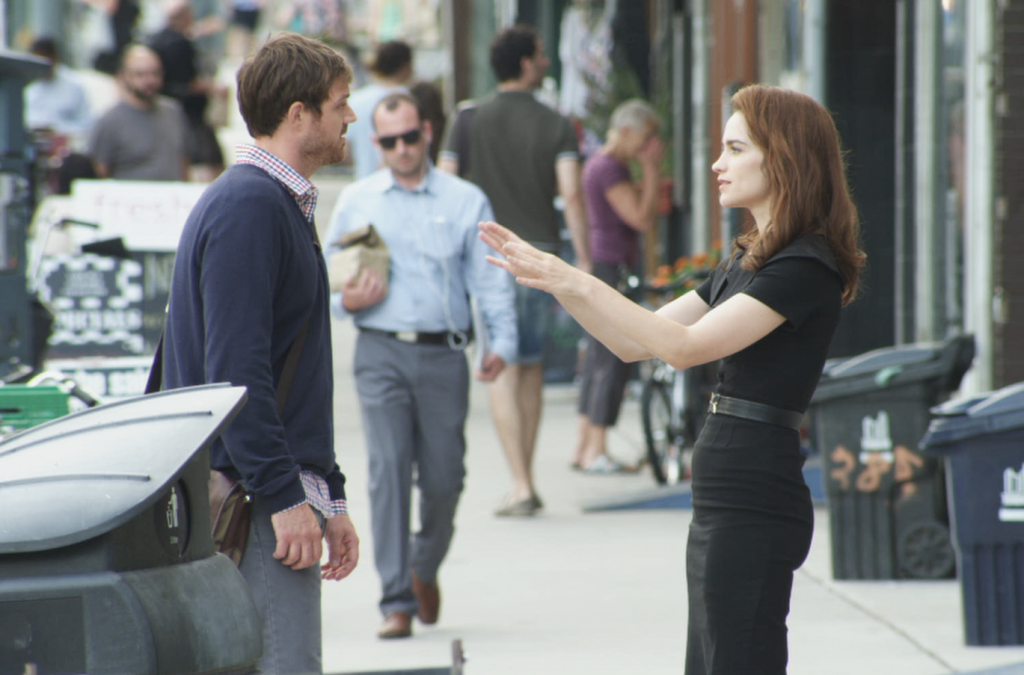Geordie Sabbagh’s A Sunday Kind of Love hits its hometown at a great time. Canadian Film Day is just around the corner, and it joins the ranks of other exceptional Canadiana fare that you should celebrate on April 20.
A Sunday Kind of Love marks Sabbagh’s first feature film – he already has two short films under his belt. His debut has a high concept, but the filmmaker keeps the presentation straightforward and simple. A wise choice since Sabbagh wants to highlight the strengths in the screenplay. The film consists of Adam, a neurotic author, and Emma, an attractive admirer who claims to be “death”, walking around the sights and sounds of Toronto and striking thought-provoking existential conversation. The script simmers over opinions of existence (including posthumous fame), and audiences are continually pulled in by the chemistry both principal actors create over time.
I recently talked with Geordie Sabbagh about A Sunday Kind of Love. I wanted to pick his brain about making a dialogue-driven movie, and I needed to know more about that jazzy score.
Addison Wylie: In ‘A Sunday Kind of Love’, the film’s lead character is in a constant emotional switch between embracing death and fearing it. Were you lifting those feelings from your personal thoughts or from observations of people you’ve encountered?
Geordie Sabbagh: The fear is very personal, as so much of my life feels unfinished. Adam’s embracing of death only comes through being able to leave a mark behind and the possibility of love. Both have been cited as wonderful reasons to embrace the light, but I currently side with Dylan Thomas and will continue to rage against that good night.
AW: As a writer, did you find the characterization of Dylan Taylor’s role as a conflicted author cathartic?
GS: Yes and no. I think if this film had taken me to the Oscars, then I would say “of course it did” and “I didn’t have to die for my dreams to come true. I just write about it”. But, my acceptance speech is still in my pocket, so I remain conflicted. I couldn’t honestly tell you what I would do if Emma showed up at my door even after writing and directing a film about it.
AW: Did you interpret the idea of writing/directing a dialogue-drive film as a challenge, or did you feel like you were in your element? After watching the movie, I’m leaning towards the latter. You have a real knack for conversation.
GS: I’m honoured you would think so, although I find the voices in my head always sound better than what I can translate on the page. I found myself drawn to those intimate romantic films where you really come to know two people, their perspective on life, and the questions they have about the world around them. Films like Before Sunset, Lost in Translation, In the Mood for Love, and even comedies like Annie Hall and When Harry Met Sally. Those are the films I love, so I challenged myself to try and create a film in that vein.
AW: The scenes taking place on the streets of Toronto felt very real. Actually, how real where they? Those “extras” looked very natural.
GS: They were very real! With our budget, we could only afford a couple of extras here and there and we couldn’t close streets. So, when Adam and Emma are walking on the streets or in public spots, we had to work around real people. Even one of the coffee shops remained open while we were filming. What’s great about Toronto is that the people are very passé about filming – most people just carried on. Although, once or twice, that meant hanging out right in front of our camera.
AW: ‘A Sunday Kind of Love’ makes use of jazz music as if you believe that sort of genre can define Toronto’s night life as much as it can sum up quaint moments of romance. Am I close, or were your intentions completely differently?
GS: I’m a huge lover of jazz and soul. I’ve used both genres in all of my previous films, so it’s more of a personal choice than an atmospheric or symbolic choice. Although, I’m happy to admit that many of my best nights in Toronto were at places like the Montreal Bistro, The Top of the Senator, or while Ross Porter was playing.
AW: Without trying to give you a backhanded compliment, your film feels as if it doesn’t end. The daytime is suddenly overtaken by the night and, before we truly realize it, we’re in a diner within the witching hour. Do you find people can so often be swept up in their own business and emotions that they don’t realize how fast time flies? Before we know it, there’s death chatting with us over a latte, right?
GS: I know I should have cut another 10 minutes! Apologies to you and our editor, but I’m glad you picked up on this idea as I intentionally wanted Adam to start the film extremely self-centered; concerned only with what he doesn’t have and a particular future that will fix all his problems. It’s through Emma, who offers to make that very future a reality (granted without him in it), that he begins to see what’s around him right now. I want to argue that technology has only made us more insular, but then I think of films like It’s a Wonderful Life and wonder if we’ve always been swept up in our own business.
A Sunday Kind of Love opens at Toronto’s Carlton Cinema on Friday, April 15. Filmmaker and cast Q&As will follow after Friday and Saturday’s P.M. screenings.
**********
Do You Tweet? Follow These Tweeple:
A Sunday Kind of Love: @SundayLoveFilm
Addison Wylie: @AddisonWylie






Leave a comment